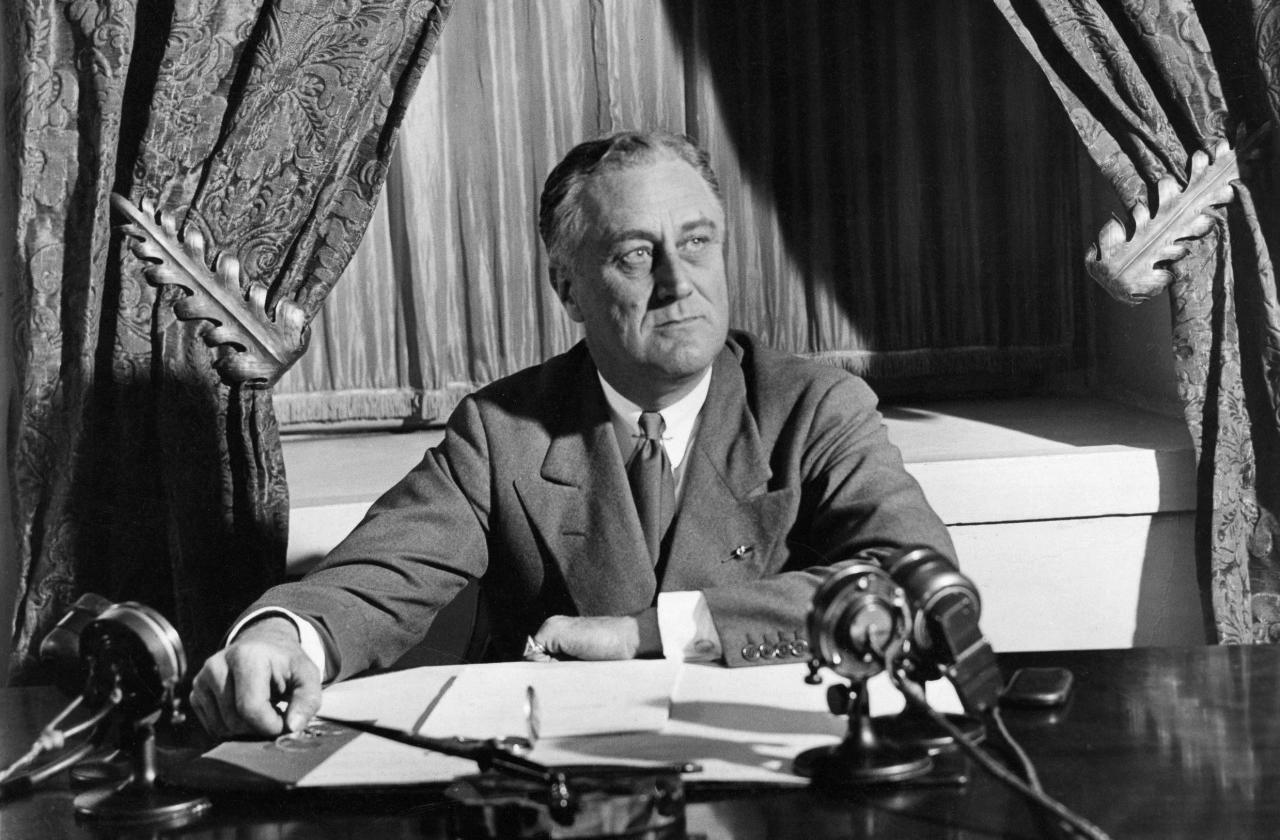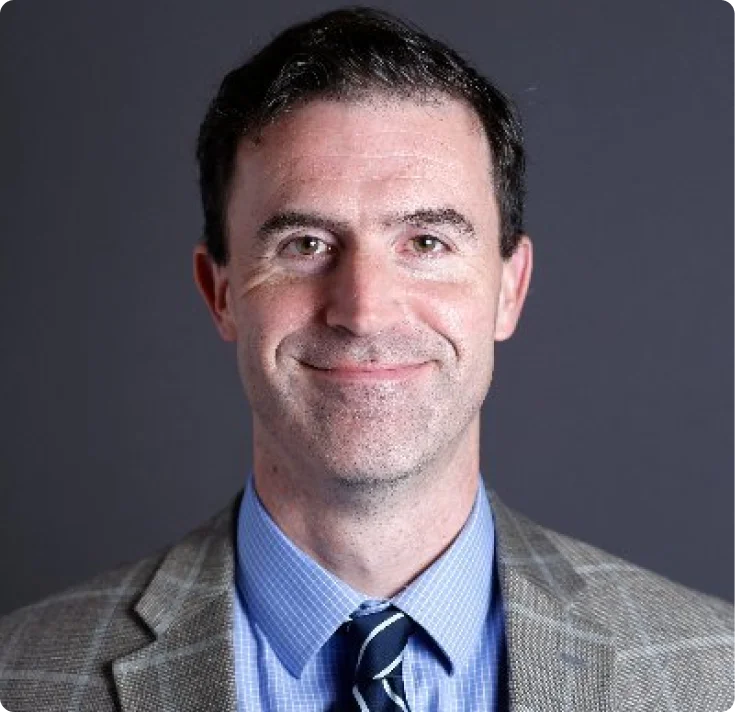
Faith, Reason, & Liberation
Nathaniel Peters reviews Ross Douthat's Believe: Why Everyone Should Be Religious.
As a Christian headed to Swarthmore in 2003, I bought an apologetics encyclopedia to prepare for debates about religion. Over the next four years, those debates never happened, and I rarely opened the book. Instead, my religious debates were more personal and internal as I learned more about Christian history, liturgical worship, and Catholicism. One summer, I read the first chapter of Joseph Ratzinger’s Introduction to Christianity and was struck by his account of how the believer and the skeptic both share doubt in common. Ratzinger wrote: “Just as the believer knows himself to be constantly threatened by unbelief, which he must experience as a continual temptation, so for the unbeliever faith remains a temptation and a threat to his apparently permanently closed world. In short, there is no escape from the dilemma of being a man. . . . It is not until belief is rejected that its unrejectability becomes evident.”
This turned out to be the case with my peers as well. In the 2000s and 2010s, interest in the Gnostic Gospels waxed and waned. The New Atheists had their moment. Gradually, I noticed that ordinary bookstores had begun to carry more books and paraphernalia related to tarot cards and paganism. As Tara Isabella Burton chronicled in Strange Rites, people began to seek transcendence through social justice, transgressive sexuality, SoulCycle, and spiritualism. Few people that I knew were interested in hashing out the truth of doctrines, but many were open to some numinous reality. I recall a conversation with a college friend several years after graduation. We were discussing how natural beauty moves us to gratitude or praise—in my case, to God. To whom did she direct her thanks, I asked. “No one,” she replied eagerly, “I just give thanks!”
In Believe: Why Everyone Should Be Religious, Ross Douthat makes the case that you should give thanks to Someone. His apologetic strategy is different. Most of the book is spent arguing that religion explains the world better than unbelief, and that if this is so, you should join one of the major religious traditions. Instead of do-it-yourself spirituality, you should embrace holy books to read, a community to join, doctrines to espouse, and authorities or guides to whom you submit. Only at the end is there a case made for Douthat’s Catholicism as the fullest instantiation of religious truth—a case whose arguments overlap with those of my old apologetics encyclopedia.
Douthat adopts the tone of a warm interlocutor at a party or coffee shop, presenting his case step by step, scenario by scenario, winsomely yet firmly. The argument is built on three assumptions. First, faith and reason are complementary. Religion operates like other aspects of human life and knowledge: its difficult questions can be analyzed rationally, and it contains “an obligation to choose a perspective even with the knowledge that this perspective is limited, fallible, and conditioned by one's upbringing and one's environment.” Second, because God has not set out to deceive human beings, we should follow the religious truths we perceive with the confidence that they will eventually lead to him. Third, it’s much better to embark on a religious path than to do nothing. Douthat wants his readers to adopt “true-ish belief” even if they haven’t yet reached the truth itself.
The structure of Douthat’s argument appears to be influenced by John Henry Newman’s understanding of faith and reason, although Newman is never explicitly named. In his Oxford University Sermons and Grammar of Assent, Newman argues that faith reasons not from direct empirical evidence, but grounds of trust or probabilities. Thus, he writes, we might say something like “I assent to this doctrine because people I trust taught it to me,” or “because good people think this way,” or “because this looks like a miracle and I have seen miracles before.” The concept of antecedent probabilities lies at the heart of faith: “Given the trustworthiness of this source, or given the nature of x, it is likely that y is the case.” Once enough probabilities accumulate, they converge to make us assent to something. As he outlines in his Apologia Pro Vita Sua, such a convergence led Newman out of Anglicanism and into the Roman Catholic Church.
Like Newman, Douthat sees the world not as asking you to make a leap of faith for one reason but as offering “multiple prompts, multiple indicators, converging and overlapping and all pointing the human intellect in a similar direction. . . .” And he thinks we should have faith because religion grapples more fully with and better explains the evidence we have before us. He begins with the order in the cosmos, especially the fine-tuning of its structure for the production of human life on Earth. Even more astonishingly, it turns out that our mind can accurately comprehend and understand this finely tuned universe. Turning to consciousness, Douthat argues that human consciousness is not reducible to brain chemistry (although the two are, of course, connected). He follows the neuroscientist Erik Hoel in arguing that while we know where different aspects of consciousness might be located in the brain, this does not explain how they are generated. If I explain how a car works by identifying its parts, Hoel notes, it becomes clear that I don’t actually know how a car works.
Third, Douthat argues that the disenchantment that has become the default paradigm of the knowledge professions is a “false paradigm, fundamentally mistaken about what it’s like to be a human being in the modern world.” The Enlightenment was supposed to put an end to supernatural experiences, but people continue to have them, even people without religious belief. A third of Americans have witnessed miraculous healings, with higher shares in other parts of the world. Echoing Sir Roger Scruton’s The Soul of the World, Douthat concludes that empirical science alone cannot explain the lebenswelt, our lived experiences of the world in all its forms. Ignoring supernatural experiences or human consciousness—not to mention art and love—because they cannot be empirically measured and understood reduces rather than expands our understanding of reality.
In the second part of the book, Douthat argues that if a religious framework makes better sense of the world, you should follow others’ guidance and paths instead of bushwacking your own. Or, as he more pithily puts it: “You are probably not a religious genius.” For most aspects of life, we learn a practice or body of knowledge through experienced practitioners and an inheritance that has been developed and handed down over time. To use Douthat’s metaphor, if you want to go from Bangor, Maine to Topeka, Kansas, in the nineteenth century, you shouldn’t cut and paste your favorite parts of five maps together to make your own authentic path. Rather, you should select the map that appears most accurate, trust its guidance, and abandon it only if it seems to be leading you astray.
Douthat is also concerned that “not every door should be opened” and that you need guidance because there are malevolent supernatural forms that you should avoid and not seek or open yourself to. That said, his picture of God is generously pluralistic. Invoking what he calls the Emeth principle—named for the virtuous Calormene in CS Lewis’s The Last Battle, who discovers that he has been worshipping Aslan all along—Douthat urges his readers to start wherever they find God. This is probably where God wants us to begin, but not where he might want you to end; hence, the need to remain open to further growth toward the truth. Recent debates over liberalism in the Catholic world struggle to acknowledge the realities of religious pluralism. Douthat’s argument echoes that of Dignitatis Humanae, which holds that religious liberty allows people of all faiths to worship God according to their conscience, in the hope that they will gradually come to know his truth more deeply as it culminates in the revelation of Christ.
Douthat ends with his own biography and an apologetic case for Christianity. He offers a Newmanian cascade of evidence and probabilities that, when they all converge, should lead us to believe that Christianity is true: the historicity of the gospels, their complementarity and difference from other historical texts, Christianity’s inexplicable triumph right when it should have been stamped out. Ultimately, Douthat acknowledges that the God of the Bible is not one of his own making, especially in the urgency with which Christ speaks and acts. “Life is short and death is certain,” he says.
Newman’s Development of Doctrine ends with a darker version of this: “Time is short, eternity is long.” Why would that be a problem? Sin, of course, though Douthat doesn’t say it. Newman wrote those words as he began to believe the truth of Catholicism, which turned his life upside down. And he became Catholic not just because Catholicism was more coherent, but because he believed it allowed him surer access to God and salvation. The central drama of Christianity begins with our evil and misery; it concludes with the triumph over that evil, the forgiveness of guilt, and the healing power of new life. It entails not just a more coherent framework for understanding reality, but consolation through suffering and a foretaste of eternal joy. In a similar vein, Buddhism begins with our misery and enslavement to the passions before proposing a path of escape.
When I taught a college theology course, it was difficult to convey that drama to a room full of students who thought of themselves as good enough—"sure I say mean things, but I haven’t killed anyone”—just as it would be difficult to sell a patient on a cure for a disease he didn’t believe he had. I expect that this is why Believe is framed as an intellectual quest for the truth, rather than a search for salvation. But I wonder if there isn’t room for more. After all, more and more people in our country are unhappy. Most Times's readers believe in structural moral evils like racism and sexism—and in the difficulty of rooting them out of themselves and receiving forgiveness. Our addictions are multiplying, and twelve-step programs begin by acknowledging a higher power. We know that membership in a religious community leads to greater markers of human flourishing. On its terms, and as an initial bridge to the religiously open but unaffiliated, Believe admirably succeeds. But the great religions tell us we are sick unto death, enslaved to our passions, and living in sin. They call us to die to ourselves and thereby to live. Perhaps a future epilogue could make the case for that.
Nathaniel Peters is the director of the Morningside Institute.

In Defense of Israel’s Legitimacy
Pierre Manent reflects on Alain Finkielkraut’s luminosity of soul and his admirable contribution to contemporary intellectual life.

The Original Sin of U.S. Health Care
As long as most Americans receive health insurance as an invisible, employer-managed fringe benefit, health care will remain expensive, opaque, and unresponsive.
.jpeg)
The False Equivalence of Multicultural Day
Parents have an affirmative obligation to reinforce patriotic values and counter the narratives that are taught in school.
Get the Civitas Outlook daily digest, plus new research and events.









